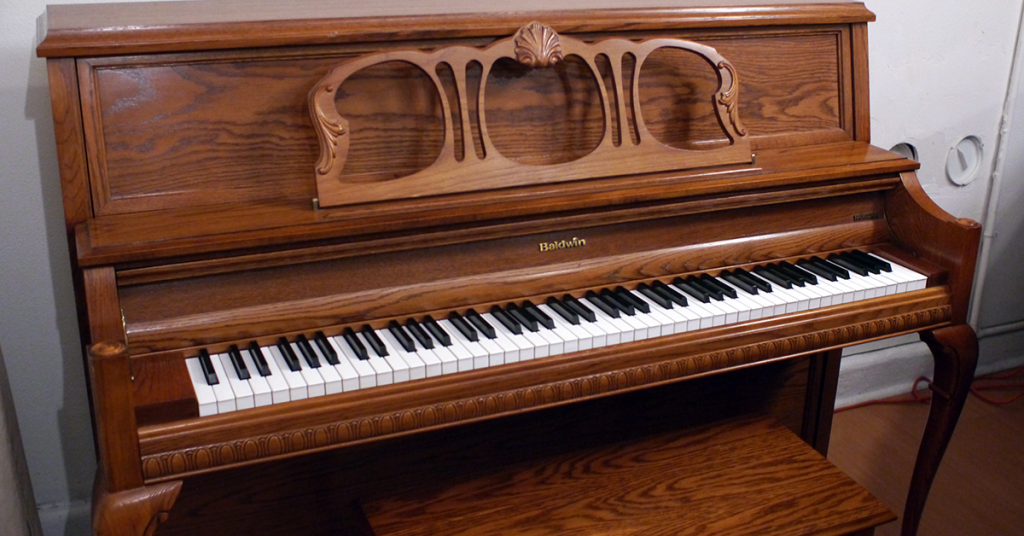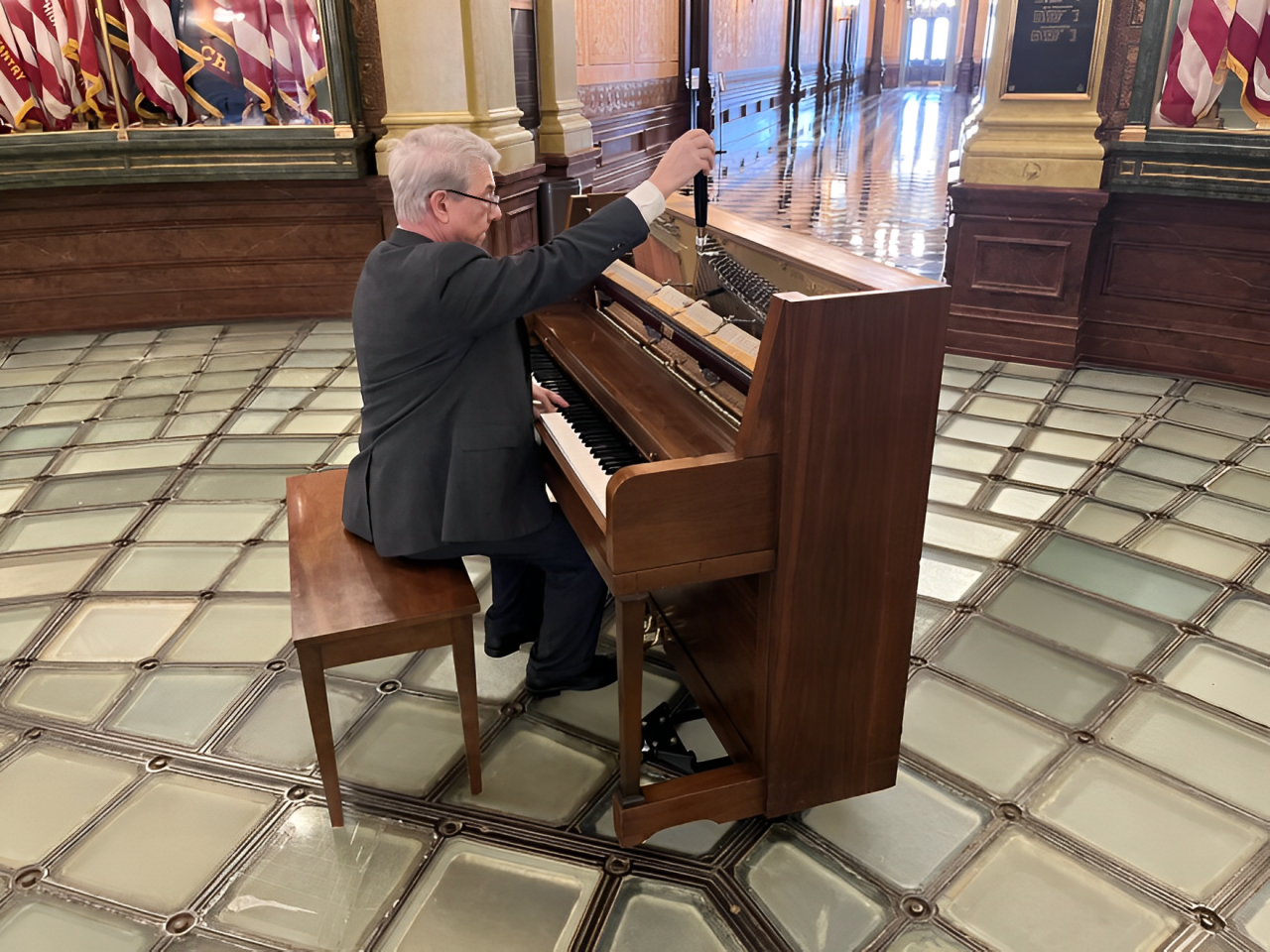The Michigan State Capitol in Lansing has always been more than just a place where lawmakers work. Over the years, the Capitol has hosted special musical events, and at the heart of these events has been a piano.
On January 31, the Capitol will welcome a brand-new, refurbished piano that will replace the old one, which had been a fixture for many years. This ceremony and concert in the Capitol Rotunda will mark a special moment in Michigan’s musical history, with a focus on preserving local craftsmanship and artistry.
A New Chapter for the Capitol’s Piano
At the center of this celebration is the piano itself—a beautiful, newly restored Everett upright, which comes from St. Gerard Church in Lansing. This donation is not just a gesture; it’s a statement about Michigan pride and craftsmanship.
The piano has undergone significant refurbishment, thanks to the efforts of David Kollar, the owner of Kollar Piano Services. Kollar has been maintaining pianos for institutions such as Michigan State University’s Wharton Center and Blue Griffin Recording Studio, as well as for the Capitol building itself.
For years, the Capitol’s previous piano, which was made in Ohio, had served its purpose, but it had started to show its age. According to Kollar, the tone quality of the Ohio-made instrument was poor, and it had serious structural problems, such as the ribs falling off the back of the soundboard.
“I didn’t like the sound quality at all,” Kollar said. “And it was a bit of a mess. It just didn’t feel right for the Capitol.”
However, Kollar’s concerns went beyond the piano’s condition. He felt that the State Capitol deserved a piano that was built in Michigan, reflecting the state’s rich musical history.
The Story of Michigan-Made Pianos

Michigan used to be home to many piano factories, with ten such factories spread across the state years ago. The state’s piano-making legacy includes brands like Everett, which Kollar has always admired. “Everett pianos were made in South Haven, Michigan, and they’re some of my favorites,” Kollar shared.
That’s when he came across an Everett upright piano at St. Gerard Church, which had recently replaced its older piano. The church donated the piano to the State Capitol, and Kollar took on the task of bringing it back to life.
Bringing the Piano Back to Life
The piano was far from perfect when Kollar first got his hands on it. Built in the 1980s, it needed extensive restoration. “It came to my shop, and my whole family worked on it,” Kollar said, adding that even his children, Bria and Robby, helped with the restoration. The project turned into a family affair, with everyone pitching in to bring this piece of Michigan history back to life.
Restoring the piano took time, but the results were worth it. Kollar and his family worked on the piano in stages. They detailed the cabinet, took the action out, filed the hammers, and regulated the action. They also polished and leveled the keys, tuning it several times to ensure it had the perfect sound. Kollar even adjusted the tone, so it wasn’t too bright or too soft.
“It was a lot of work, but I knew it would eventually have a special place in the Capitol,” Kollar said.
The result? A piano that Kollar proudly calls “a workhorse.” He’s confident it will stand the test of time in the Capitol, offering both beauty and reliability for future musical programs.
Why Michigan-made Pianos Matter

Kollar’s passion for Michigan-made pianos goes beyond nostalgia. He believes that having a local instrument in the Capitol helps preserve the state’s piano-making legacy. In the past, many schools, churches, and institutions used these pianos, rolling them from classrooms to stages and back again. Their durability and resilience make them perfect for a busy environment like the Capitol Rotunda, where events and performances are often held.
“These pianos were designed to be moved around, and they were used in schools and churches all over the state,” Kollar said. “They were built to last, and I think it’s just perfect for this site.”
A Special Dedication Ceremony
The official dedication ceremony for the new piano will take place on January 31 at 10 a.m. in the Capitol Rotunda. During the event, attendees will have the chance to hear the newly restored instrument in action, with a special musical program featuring works by Owosso native Albert Fillmore.
This ceremony not only marks the arrival of a new instrument but also celebrates Michigan’s musical heritage. The state is rich with piano-making history, and this dedication ceremony highlights the importance of supporting local craftsmanship.
Conclusion
The arrival of this Michigan-made piano at the State Capitol is more than just a musical milestone—it’s a symbol of state pride. Thanks to the hard work of David Kollar and his family, the Capitol now has a piano that not only sounds beautiful but also carries with it the spirit of Michigan’s long-standing musical traditions.
Disclaimer: This article has been meticulously fact-checked by our team to ensure accuracy and uphold transparency. We strive to deliver trustworthy and dependable content to our readers.

